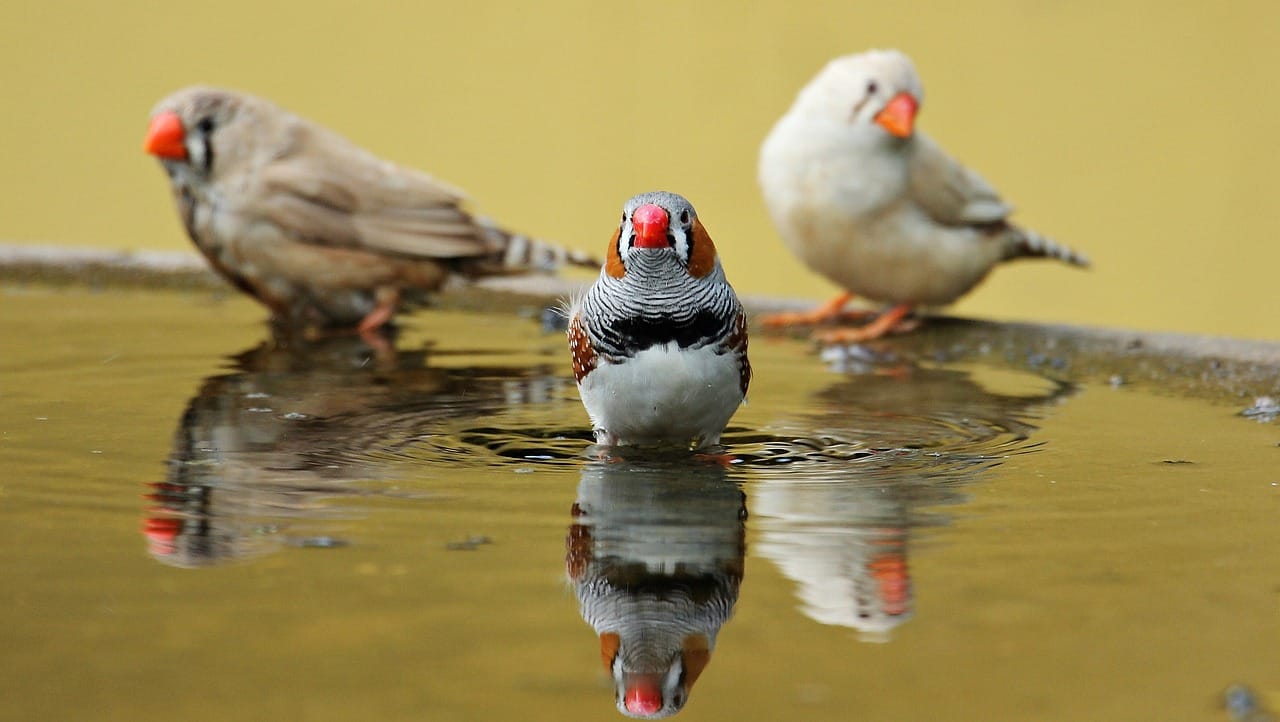Finches are among the most popular pet birds, celebrated for their colorful plumage, cheerful chirping, and minimal care requirements. These small, social birds thrive in small flocks, making them an excellent choice for bird enthusiasts and first-time pet owners alike.
Why Finches Make Great Pets
Finches are native to various parts of the world, including Africa, Asia, and the Americas, and come in an array of colors and patterns. Species like zebra finches and Gouldian finches are particularly popular in the pet trade.
Key Benefits:
- Low-Maintenance Care: Finches don’t require constant attention, making them ideal for busy owners.
- Compact Space Needs: They can live comfortably in a moderately sized cage, unlike larger parrots.
- Peaceful Nature: Finches are non-aggressive and thrive in groups.
- Charming Behavior: Their flitting movements and soft, melodic chirps bring life to any room.
Setting Up a Finch Habitat
Providing a comfortable and enriching environment is key to keeping your finches happy and healthy.
1. Cage Size and Setup:
- Size: A horizontal cage with at least 30 inches in width is ideal for their flight patterns.
- Perches: Include multiple perches of varying thickness to promote foot health.
- Nest Boxes: Finches enjoy nesting and may use small boxes or woven nests for sleeping.
2. Diet:
- Staple Food: A high-quality finch seed mix should form the base of their diet.
- Supplements: Provide fresh vegetables, fruits, and egg food for balanced nutrition.
- Calcium Source: Cuttlebone or mineral blocks are essential for bone health and egg-laying females.
3. Maintenance:
- Clean the cage and food dishes regularly to prevent the buildup of bacteria.
- Replace water daily to ensure hydration.
Caring for Finch Flocks
Finches are highly social and thrive when kept in pairs or small groups. However, it’s essential to:
- Match Species: Keep compatible finch species together to avoid conflicts.
- Monitor Group Dynamics: Ensure all birds have access to food, water, and space.
Health and Lifespan
With proper care, finches can live 5-10 years. Regularly check for:
- Feather Health: Loss of feathers or dull plumage can indicate stress or illness.
- Weight Loss: Sudden weight changes may signal dietary or health issues.
- Respiratory Problems: Wheezing or labored breathing requires immediate veterinary attention.
Are Finches Right for You?
Finches are perfect for individuals or families who:
- Enjoy observing bird behavior without the need for direct interaction.
- Prefer a pet that’s more independent and doesn’t require frequent handling.
- Appreciate the beauty of soft chirps and colorful plumage.
Most Q&A about Finches
Do finches have a sad meaning ?
While finches are generally seen as joyful and lively creatures, there are a few instances where they might carry a sad meaning:
- Loss or Passing: In some cultures, a finch flying into a window can be interpreted as a sign of a loved one’s passing or an impending loss. This superstition likely stems from the fragility of the bird and the suddenness of the event.
- Caged Birds: Seeing a finch in a cage can evoke feelings of sadness or confinement, symbolizing a loss of freedom. This is particularly true if the bird appears unhappy or neglected.
- Specific Colors: In some traditions, the color of a finch can hold meaning. For example, a yellow finch might be associated with joy, while a brown or gray finch could be linked to sadness or mourning.
However, it’s important to remember that these are just interpretations and superstitions. In many cultures, finches are symbols of joy, hope, and new beginnings. Their vibrant colors, cheerful songs, and active nature often bring positive associations.
Ultimately, the meaning of a finch is subjective and depends on individual beliefs and cultural contexts.
Do woodpecker finches find mates easily?
Woodpecker finches, found on the Galápagos Islands, actually don’t have too much trouble finding mates! Here’s why:
- Limited Competition: They have a relatively small and isolated habitat, meaning there aren’t a ton of other bird species competing for the same resources or mates.
- Unique Skillset: Their specialized tool-using behavior (using twigs or cactus spines to extract insects) makes them efficient foragers, which can be attractive to potential mates. A well-fed bird is a healthy bird!
- Established Territories: Woodpecker finches tend to establish and defend territories, which helps them attract mates and raise their young.
However, like all species, they face some challenges:
- Habitat Loss: Human activity and introduced species can impact their habitat and food sources, making it harder to find resources and successfully raise offspring.
- Selective Mates: Females can be choosy about their partners, preferring males with good foraging skills and territory quality.
Overall, woodpecker finches have a decent success rate in finding mates, thanks to their unique adaptations and relatively stable environment. However, ongoing conservation efforts are crucial to protect their habitat and ensure their continued survival.
Finally
Finches are delightful, low-maintenance pets that brighten any space with their vibrant colors and cheerful songs. Whether you’re starting with a pair or a small flock, these birds provide endless joy with their playful energy and social nature.
Visit Exotic Pet Haven for tips on setting up the perfect habitat, choosing compatible species, and ensuring your finches thrive in your care!

